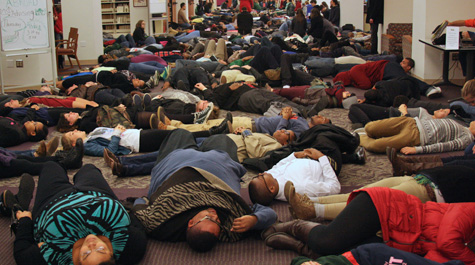Over the last week the College of William and Mary’s administration held three separate forums for undergraduates, graduates and faculty to relay their feedback on the campus racial climate to the Task Force on Race and Race Relations. The Task Force was created last spring to address racial climate, the diversification of faculty, education and training on race relations and means of recording and responding to incidents of racial bias.
The forums sought to incorporate community experience into the task force’s evaluation, and will use the feedback in a report, to be released in March, detailing the current racial climate on campus and suggestions for addressing racially-based problems at the College.
Although the forums may seem a little late, they should not be considered completely reactionary or less valuable.
It’s worth noting that the Task Force on Race and Race Relations was born out of an inherently reactionary response by the administration to racially-based events during the spring 2015 semester, including racially insensitive parties and the Black Lives Matter campaign die-in held at Earl Gregg Swem Library. At the time, little was done to directly address and involve the campus community in a conversation about race relations on campus. While there was some programming addressing the Greek community after the discovery of racially insensitive party themes by some members, no campus-wide event was held to engage the student body in a meaningful conversation about race on campus.
Although the forums may seem a little late, they should not be considered completely reactionary or less valuable. They were, in fact, scheduled before the University of Missouri crisis took over national news, the most recent of national incidents regarding racial climate on college campuses. The undertaking of communal conversation in an open and inclusive way is still a meaningful start to addressing the complex problem of race.
In addition to exposing incoming students to the personal experiences of peers regarding race upon their introduction to orientation activities, campus-wide forums should be held frequently and in a regular manner.
That being said, effective programming is pre-emptive; it engages the community early on with personalized experiences from community members in an open, honest and realistic manner. One of the forums proposed having students take a class on diversity and race similar to the AlcoholEdu program that incoming students are required to pass. This is an example of an ineffective way to address a highly personal topic such as race — students can mindlessly click through without actually engaging with the topic at hand. Another proposition involved extending orientation activities past the first year of school. While the conversation should not end with orientation activities, a longer orientation will not necessarily be more effective if the topic isn’t addressed directly and early on.
In addition to exposing incoming students to the personal experiences of peers regarding race upon their introduction to orientation activities, campus-wide forums should be held frequently and in a regular manner. The continuation of the conversation with campus leaders and less involved students alike on a regular basis, perhaps annually at the least, allows for measurable progress and will account for changing conditions.
This school should take steps to move away from its reactionary tendencies and towards more proactive programming. The campus forums are a step in the right direction, and if these conversations continue, they can help determine community-based solutions to the deeply complex and personal issue of race relations.


There is a huge glaring factual inaccuracy in your opinion piece. When you write, “At the time, little was done to directly address and involve the campus
community in a conversation about race relations on campus. While there
was some programming addressing the Greek community after the discovery
of racially insensitive party themes by some members, no campus-wide
event was held to engage the student body in a meaningful conversation
about race on campus.” The fact of the matter is there were numerous events during the last academic year to engage the student body about racial issues and racial issues on campus. The Center for Student Diversity, NPHC organizations, the Lemon Project, the Student Assembly, the Black Law Students Association, and Black Lives Matter-Williamsburg, among others, all held various events and forums on campus throughout the entire school year addressing difficult societal racial issues and racial issues on campus. These events were publicized through the campus’s event system, social media, and even in this newspaper, among other print media. Many other events did not garner coverage even though Flat Hat was contacted to cover the events. I think this inaccuracy in your piece reveals how startlingly removed large parts of the student body are and comfortably can be from diversity initiatives on campus and the ease in which this removal is buttressed through institutional apathy from top administrators and faculty and sloppy revisionism (like in this piece) all of which only serve to undercut the tireless efforts of student organizations, student leaders, and faculty/administrators of color who make these events possible.